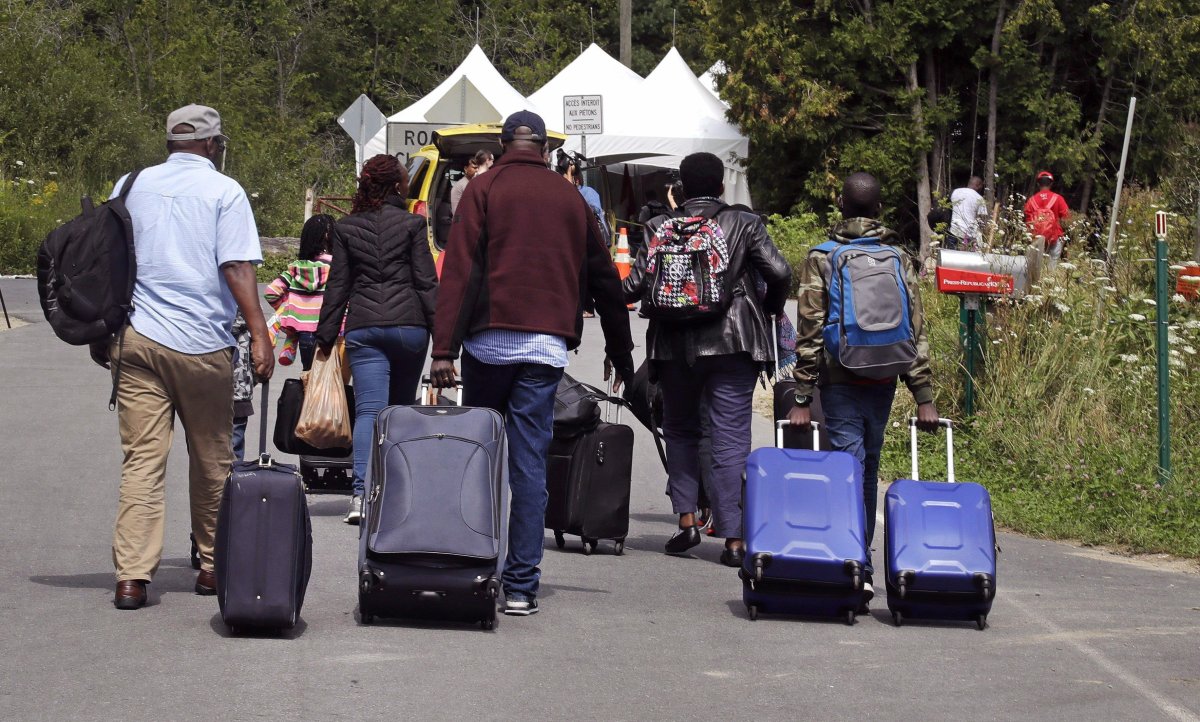The Federal Court has ruled that the Safe Third Country Agreement (STCA), which allows Canada to send certain refugee claimants back to the United States, is unconstitutional.

Released Wednesday, the decision from Justice Ann McDonald explicitly states that the U.S. is no longer a safe country for refugees sent back from Canada due to the risk of imprisonment.
“For the reasons outlined below, I have concluded that the actions of Canadian authorities in enforcing the STCA result in ineligible (refugee) claimants being imprisoned by US authorities,” McDonald wrote.
“I have concluded that imprisonment and the attendant consequences are inconsistent with the spirit and objective of the STCA and are a violation of the rights guaranteed by section 7 of the (Charter of Rights and Freedoms).”

The court challenge to the STCA was launched by several refugee advocacy groups, including the Canadian Council for Refugees, Amnesty International and the Canadian Council of Churches, as well as several would-be refugees who were deemed ineligible to make asylum claims in Canada due to provisions contained in the STCA.
One of the applicants, a woman from Ethiopia, was detained by Canadian border officials before being sent back to the U.S., where she was held in solitary confinement for a week and then detained for three more weeks before being released on bond.
According to McDonald’s ruling, the imprisonment of refugees returned to the U.S. is a “foreseeable” consequence of Canada’s actions when enforcing the STCA and therefore a violation of the Charter because it deprives claimants of their liberty for no reason other than making a refugee claim. She also ruled that Canada is not a “passive participant” in these actions.
“It is my conclusion, based upon the evidence, that ineligible STCA claimants are returned to the US by Canadian officials where they are immediately and automatically imprisoned by US authorities,” McDonald said.

Although McDonald’s ruling clearly states the STCA is unconstitutional, the decision does not take effect for six months, during which time the law remains in force. The government can also use this time to decide whether it will appeal the decision or suspend the STCA, which it can unilaterally do under terms of the agreement.

Get breaking National news
“We are aware of the Federal Court’s decision and are currently reviewing it. Although the Federal Court has made its ruling, that decision does not come in effect until January 22nd 2021. The Safe Third Country Agreement remains in effect,” said Mary-Liz Power, spokesperson for Public Safety and Emergency Preparedness Minister Bill Blair.
Government urged not to appeal
Janet Dench, executive director of the Canadian Council for Refugees, said Wednesday’s decision is a victory for asylum seekers, especially those sent back to the U.S. who then face imprisonment.
She’s asking the government to look carefully at the court’s ruling and to not appeal the decision.
“We are certainly urging the government to take time and to take into account what the court has found, which is that people’s fundamental rights are being violated, and to withdraw from the agreement, to stop sending people back to the U.S.,” she said.
Under the terms of the STCA, Canada and the U.S. have the right to return certain asylum seekers who attempt to enter each country through an official port of entry along the Canada-U.S. border.

The underlying principle supporting the agreement is that Canada and the U.S. consider each other “safe” for asylum seekers and countries where would-be refugees will be subject to a fair determination process for their claims.
The STCA does, however, include several exemptions, including unaccompanied minors who do not have a parent living in the U.S., plus any asylum seeker with a family member currently living in Canada.
In the spring of 2017, asylum seekers began entering Canada at unofficial points of entry between border crossings, such as at Roxham Road in Quebec. Referred to as irregular border crossers, these would-be refugees were able to get around the STCA because it only applies to official ports of entry.
According to the Immigration and Refugee Board of Canada, roughly 58,000 irregular border crossers have made asylum claims in Canada since February 2017.
Of these, roughly 14,500 have been accepted and 12,000 have been rejected. There are roughly 29,600 claims still awaiting a decision.








Comments